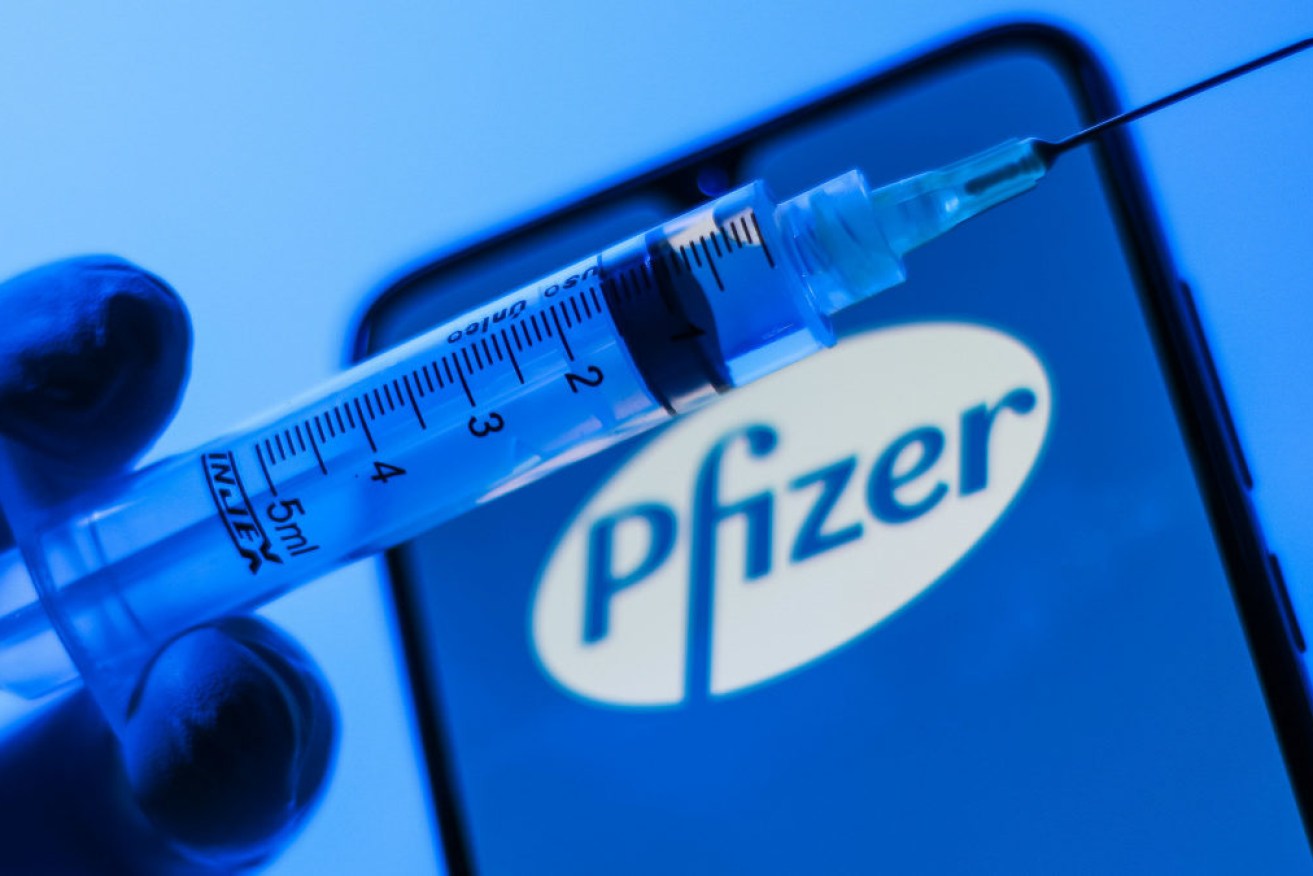UK approves Pfizer-BioNTech coronavirus vaccine in world first

The Pfizer-BioNTech COVID-19 vaccine has been approved for use in Britain on Wednesday. Photo: AAP
Britain has become the first country in the world to approve the Pfizer-BioNTech COVID-19 vaccine for use and says it will be rolled out from early next week.
“The government has today accepted the recommendation from the independent Medicines and Healthcare products Regulatory Agency (MHRA) to approve Pfizer-BioNTech’s COVID-19 vaccine for use,” the government said on Wednesday.
“The vaccine will be made available across the UK from next week.”
Analysis shows the vaccine can prevent 95 per cent of people from getting COVID-19, including 94 per cent in older age groups.
The vaccine has been tested on 43,500 people in six countries and no safety concerns were raised.
Approval means the UK can begin rolling out the vaccine to those most in need, including frontline NHS workers.
Help is on its way.
The MHRA has formally authorised the Pfizer/BioNTech vaccine for Covid-19.
The NHS stands ready to start vaccinating early next week.
The UK is the first country in the world to have a clinically approved vaccine for supply.
— Matt Hancock (@MattHancock) December 2, 2020
Pfizer said Britain’s emergency use authorisation marks a historic moment in the fight against COVID-19.
“This authorisation is a goal we have been working toward since we first declared that science will win, and we applaud the MHRA for their ability to conduct a careful assessment and take timely action to help protect the people of the UK,” CEO Albert Bourla said.
“As we anticipate further authorisations and approvals, we are focused on moving with the same level of urgency to safely supply a high-quality vaccine around the world.”
Health Secretary Matt Hancock said the program would begin early next week.
Hospitals, he said, were already ready to receive it.
“It is very good news,” Hancock said.
How it works
The jab is known as a messenger RNA (mRNA) vaccine.
Conventional vaccines are produced using weakened forms of the virus, but mRNAs use only the virus’s genetic code.
An mRNA vaccine is injected into the body where it enters cells and tells them to create antigens.
These antigens are recognised by the immune system and prepare it to fight coronavirus.
No actual virus is needed to create an mRNA vaccine. This means the rate at which it can be produced is dramatically accelerated.
As a result, mRNA vaccines have been hailed as potentially offering a rapid solution to new outbreaks of infectious diseases.
In theory, they can also be modified reasonably quickly if, for example, a virus develops mutations and begins to change.
mRNA vaccines are also cheaper to produce than traditional vaccines, although both will play an important role in tackling COVID-19.
One downside to mRNA vaccines is that they need to be stored at ultra-cold temperatures and cannot be transported easily.








